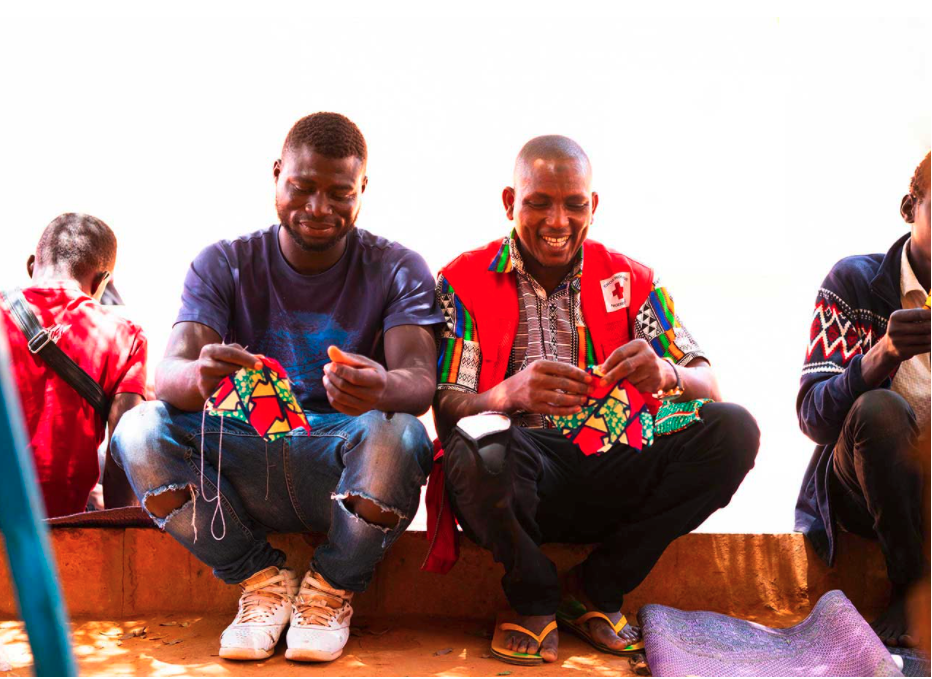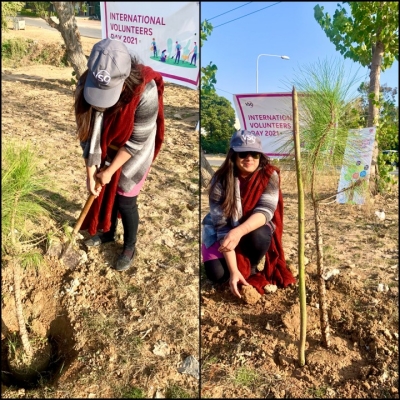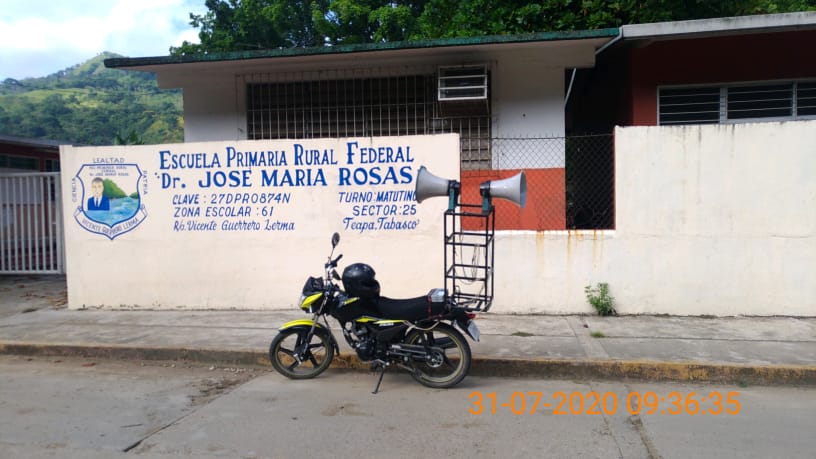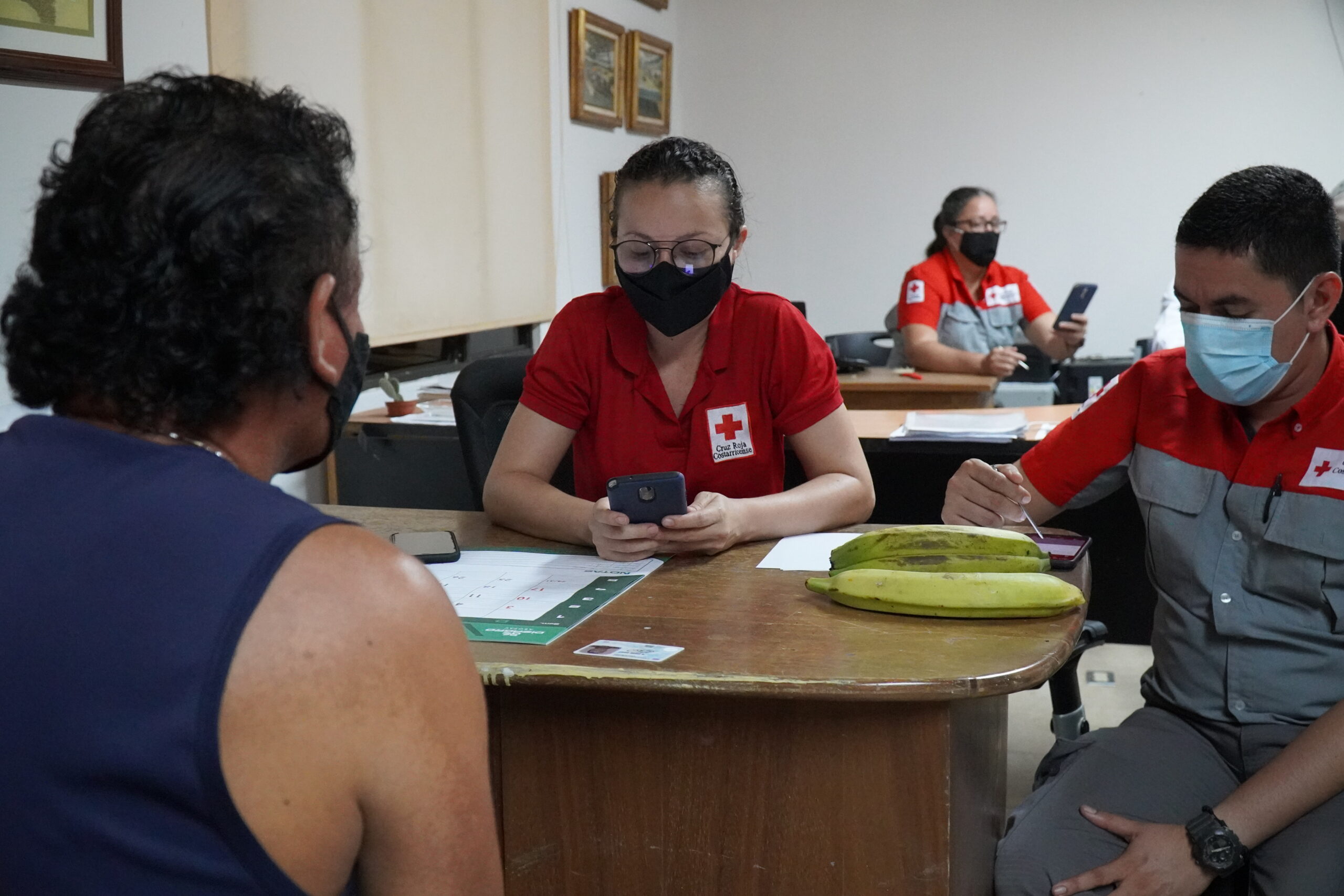Migrants hit an “invisible wall” in accessing COVID-19 care and vaccines

Originally posted on IFRC website:
Geneva, 9 March 2021 – A new report released today documents an “invisible wall” that has blocked migrants from accessing basic services since the start of the COVID-19 pandemic, and is now preventing them from accessing vaccines.
The report – Locked down and left out? Why access to basic services for migrants is critical to our COVID-19 response and recovery – draws on research carried out across all regions by the newly established Red Cross Red Crescent Global Migration Lab, hosted by the Australian Red Cross and supported by the International Federation of Red Cross and Red Crescent Societies (IFRC) and the International Committee of the Red Cross (ICRC).
Jagan Chapagain, IFRC Secretary-General said:
“Our research reveals what we are calling an ‘invisible wall’ that has blocked migrants – particularly those undocumented or in an irregular situation – from accessing basic services. Interestingly, this wall isn’t built mainly of policies designed to exclude migrants. Instead, it is made up of inadvertent exclusions, as well as the unintended consequences of efforts to contain and control the pandemic.”
The report shows that – while lockdowns and other measures were designed to control the spread of COVID-19 – in many contexts, they inadvertently increased suffering among migrants. As a result of these restrictions, many migrants lost jobs and livelihoods and were subsequently unable to meet their most basic needs, leading to worrying levels of food insecurity, homelessness due to inability to pay rent, and worsening mental health conditions.
The research also found that, even in situations where migrants had been included in COVID-19 policies, their actual ability to access basic services was often constrained. For example, in some countries, migrants have been unable to access COVID-19 testing or treatment because they do not have a national identity or social security number. This is likely to also affect access to COVID-19 vaccinations, even if eligibility in law exists.
In other situations, migrants reported being hesitant to consult a doctor, seek treatment, or, more recently, register for the COVID-19 vaccine due to fears of disclosing private information which may be shared with immigration authorities to arrest, detain or deport them. The fact that, in some countries, migrants need to register online to get COVID-19 vaccinations also contributes to exclusion, due to some migrants’ limited internet access or digital literacy and language barriers.
Jagan Chapagain, IFRC Secretary-General said:
“The inclusion of migrants into national COVID-19 policies does not necessarily translate into inclusive and effective access in practice. It is not only a humanitarian imperative to ensure the inclusion of all migrants, irrespective of legal status, into national COVID-19 vaccination programs, but it is also in every country’s interests to do so.
“COVID-19 doesn’t care about a person’s migration status, and neither should we. Unless everyone is included, the virus will continue to circulate and mutate, potentially undermining the efficacy of all vaccinations efforts.”
Ensuring all migrants are included in COVID-19 vaccination policies and rollout strategies is key to ending the pandemic.



